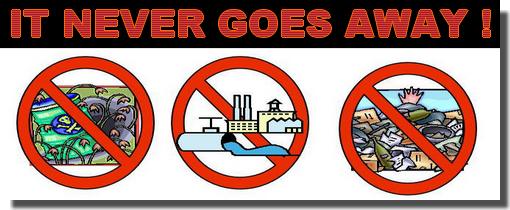Not my responsibility!
Reducing waste is not my responsibility, I pay my taxes for that!
That’s a load of …
During our zero waste challenge we have seen many news items and accounts of local authorities and individuals trying to do their part to reduce household waste. Most of this has been very encouraging and positive and many significant changes have been seen across the country. It seems however, that not everyone is happy with being a part of this movement and in fact some people have been actively fighting against the efforts to reduce waste. We have read news reports in the UK about some residents abusing and insulting refuse collection operatives and even throwing rotten waste at them, as a demonstration against less frequent waste collections. Some people are actively trying to exaggerate the waste collection problem by deliberately putting rotting material in their bins and adding maggots to make the health problem look worse than it is.
People are very sensitive about waste collection and the associated health risks that they see connected to less frequent kerbside collections. They claim that this move is a step backwards in progress and will lead to the introduction of disease, vermin and festering waste that threatens environmental health as a whole. In all fairness, there is a valid argument to this point of view.
It is a dangerous move to reduce frequency of waste collection without a major public awareness and education program to show people …
- WHY is is so important to accept personal responsibility for waste reduction
- HOW to create less waste by recycling effectively
- WHERE to find local recycling facilities
- WHO to contact for help
These factors must be in place before reducing waste collection, or else we risk more conflict and resistance by people, who still believe that it’s their right to demand someone else take the responsibility for dealing with their waste.
There is need for a major sea-change in attitudes towards waste. We have used the term ‘Throw it away‘ for decades without really knowing or fully understanding that there is NO such place as ‘away’, but that it really means ‘take it somewhere else where I can’t see it or have to deal with it’. ‘Throw it away’ has also become a buzz word in marketing with an ever increasing trend to encourage more consumerism. So far we have succeeded in burying waste and making the term ‘away’ a hidden place under the ground, or in the seas. The fact is that we are quickly running out of space to hide our waste and we have also discovered that the pollution effect of festering food and chemicals in the ground is seriously poisoning our environment. This is no longer scaremongering from a few ‘greenies’, but a stark reality that we can not ignore.
Ideally we must stop the problem at its source. This means significant changes from both manufacturers, packaging methods and most of all, from the consumer. We live in a consumer led market and we need to learn how to make better choices in what we buy, especially in consideration of choosing low packaging and wasting less unused foodstuffs. We have seen in our own waste challenge that better choices in what we buy have a significant effect on what we have to throw away afterwards. Making these consumer choices also sends a message back to marketing and manufacturers that certain ‘eco-friendly’ products are more popular, which will ultimately increase their popularity and reduce prices through demand.
This kind of selective, informed consumerism is essential in the quest to reduce excess food and packaging waste. Knowing how to do this is and setting it in action must precede less frequent kerbside collection.
The bottom line is remarkably simple; it is now everyone’s responsibility to produce less waste. We have proved that it can be done. A 10% reduction is very easy and requires only a basic awareness of using your kerbside recycling facilities.
Start it small, zero waste is the ideal, but not all at once.
If everyone recycled an extra item every day, across the nation this would make a huge impact on waste reduction. It’s a small step, that collectively make a big difference.
We maintain and will demonstrate that much greater waste reduction is possible, even up to 75% less per week simply by selective purchasing and recycling. How far you go is up to you and what facilities you have available. What matters is that everyone makes that choice to become part of the answer in a positive way and not maintaining the old ideals that getting rid of waste is someone else’s responsibility.
















Mr Green, I am sooooooooooo proud of you stepping up to the cause like this and in such a short space of time since I set you the guys the zero waste challenge. Fab article and you’ve summed it up perfectly.
The other thing that I meant to say before I hit the submit button so keenly was that one of the things that I have learned since I did my own zero waste challenge is that it is important to stop seeing rubbish as rubbish and start focusing on it as a resource. Some may think that this is extreme behaviour but it is now pretty normal that when I succumb to a bottle of diet coke when out and about, I now bring that bottle home with me (amongst other things) for recycling instead of bunging it in a municipal rubbish bin.
We’re not having waste collection this week, due to strike action by union members – so garden waste, recycling and ‘rubbish’ are hanging around for 2 weeks. The council have said that they will accept a ‘reasonable’ amount of side waste as a result next week. People seem to be up in arms – but I’m not really sure why. We have plastic wheelie bins for rubbish and garden waste and lidded plastic boxes for recycling – thereby deterring vermin. As to side waste – well we are a family of 5 (including one in disposable nappies – I hold my hand up and admit it) – and we create less than 2 swing bin bags of rubbish a week – and I’m sure it would compact even more if I squished it down. We can easily fit at least 3 weeks rubbish into a bin without even trying. Most of our waste is nappies and plastic from meat packaging and non-recyclable plastics and some mixed packaging which I can’t manage to separate.
Our next door neighbours, however, are a family of 3 who regularly have a wheelie bin with a lifted lid because it is so full 🙁 We are meant to have a no-collection policy if the bin lid doesn’t shut properly, but that is just not happening.
I wish the council had taken this opportunity to push recycling/ waste reduction even more. I, for one, would be happy to have bi-weekly rubbish collections. If the money saved could then be spent elsewhere, even better!
Ditto Louise. I actually welcome the idea of not having my rubbish collected weekly, but I can already see bulging bins around the local streets. I really don’t understand what they are throwing away.
Recent attempts to find out what people were throwing rather than recycling were slammed in the press by those who suddenly got all possesive over ‘their’ rubbish. It was bizzare.
Hi Mrs. A Louise and Poppy, thanks for your comments. When we started to look at out household waste more critically, we realised that much of the ‘bulk’ was taken up with packaging containing air! It’s the old problem, that it’s easier to just throw the box or bottle away than squash it down and reduce its voume. Of course we now separate all our recycleables, but also things like boxes, tins and other containers get squashed, crushed and compacted. It makes a huge difference to the volume of materials. That means it’s easier to store and easier to handle in the recycling centers. For certain all this IS extra work, but we’ve come to realise that’s the price we have to pay. It’s also an incentive to think twice about buying products that cause a recycling headache once they have been used.
Hi Poppy – I saw that some councils were doing a rubbish ‘audit’ on bins and read some of the comments of people against it (actually, come to think of it, I don’t think there were ANY positive comments!) – I too cannot understand what they are throwing away to create so much rubbish (well, it MUST include easy recyclables) and why they are so protective of something which they obviously don’t want as they are throwing it away!
I would have no problems in someone auditing my bin – if they want to swish about in the crushed chicken carcass which was used for stock and the numerous envelopes from windows in there and the fat trimmed from the pork, then they can feel free 🙂
I consider us lucky to have so much recyclable rubbish collected. Sure, there’s stuff that isn’t – but most of it I can take to my local supermarket less than 2 miles away) and the stuff which isn’t collected doesn’t take up much room (batteries, foil and the like) for a trip to the ‘tip’ (oops, sorry, recycling centre!) at some point in the future when going that way. Unfortunately, some people won’t even use kerbside recycling – and short of bin ‘audits’ and possible fines I don’t know how they’d change their ways – how much easier can it be made for them? I realise some more education may be required too, of course.
I’ve been walking around an area this morning that has its bin and recycling collection today, so lots of bins and boxes lined up at the kerbside.
Lots of bins over-flowing! The one box that amazed me though, was a box of very clean washed tins, but not one of them was crushed! I saw lots of others that also hadn’t been crushed, but the fact that this person had gone to so much trouble but failed at the last hurdle left me scratching my head a bit!!!
oops – my bin has windows from envelopes in, not the other way around!! (you all know the crinkly bits of stuff I mean, I’m sure!)